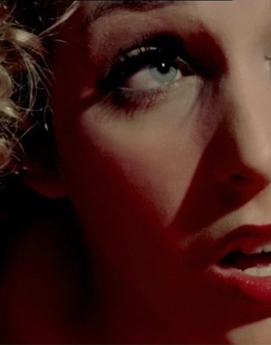Interview and call for entries :: Seen and Heard Festival
December 21st 2011
Nick La Rosa

Since 2009, the Seen and Heard festival has been working to showcase the work of women in film. Be it short films, features, docos, animation – if the image is moving and there’s a lady-type at the helm, Seen and Heard want to know about it. And thank god. I just learnt that in 80-odd years of Academy Awards, of the five nominations each year, only four women have been nominated for Best Director. FOUR. OUT OF FOUR HUNDRED. WTF OSCAR!?
Breezing into its third festival in 2012, Seen and Heard is currently calling for entries. Seeking films featuring women in major production roles, there are virtually no rules – other than having a vagina, or identifying as female. So, come on ladies, get your film on!
Flog caught up with the super talented and hard-working festival coordinator Lucy Randall to find out why women are still on the cinematic outer. For all submissions, head to http://www.seenandheardfilms.com
FBi Flog: Could you tell me a bit more about the last couple of years? Were there any real highlight entries that spring to mind for you?
Lucy Randall: The last couple of years have been a series baby steps along with leaps and bounds. Seen and Heard started out in Blank_Space gallery in Surry Hills in 2009 as a ten night event with a community event feel, with audience numbers ranging from 8 to 80, the following year relocating to the Red Rattler opening to much larger audiences.
Highlight entries for me would have to be the short documentary White Sound by Sarah Tracton, a filmmaker who lost her hearing in her twenties, who charmed audiences at several talks during the festival.
Producer Kath Shelper (Samson and Delilah) has provided us with a series of short films by Indigenous women filmmakers both years; my favourite of which was Hush by Dena Curtis, a comedy about a couple of grandmother-aged women who are running a pornographic hotline from home.
Do you have any fave female directors that serve as inspiration for you?
Jane Campion is an ongoing advocate for this particular cause, and has made clear to the press she’s not going to shut up about it. I had the pleasure of meeting her earlier in the year, and she was just as fiery about the issue as I imagined her to be. An incredible filmmaker and one of four women ever nominated for Best Director Academy Award, she is one of my biggest inspirations, along with all the smaller time filmmakers I’ve had the pleasure of meeting so far.
Given the pretty open brief (no rules but identifying as a woman) do you expect a big diversity of entries?
There are two things I’d like to achieve through the festival, that is highlighting to audiences industry prejudice, but also to demonstrate that films made by women are diverse and by no means limited to a few sappy genres, or indigestible feminist works. Much of the festival leans towards documentaries, as they will tend to give the largest scope of topics, it’s also important though to give female-directed comedy more exposure as so much of it slips under the radar. This year, Bridesmaids was a huge success, and critics were calling it revolutionary, which, in 2011, to me is beyond absurd: it has just dawned on the industry that women can be funny, thus profitable.
Why is a festival like Seen and Heard so important?
While there are plenty of women in producing and screenwriting roles, they are being blocked from the creative helm as director.
We have no chance for true diversity on screen if there is no diversity off-screen. Film is such an accessible medium – we don’t have to be literate or art savvy to enjoy it – its influence is undeniable. There is no


